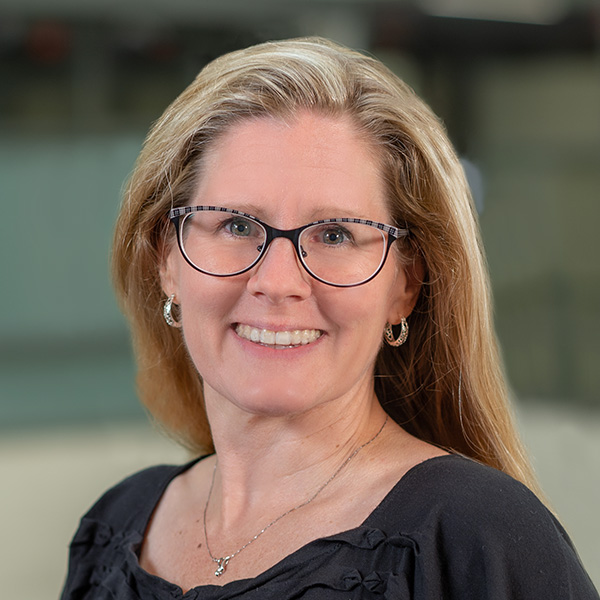Tools for Teaching, Exploring Economics Early
You may think that a story about a barbershop couldn’t teach children about a complex topic like economics. But Andrew Hill, the Philadelphia Fed’s top educator, said you might be surprised.
“Uncle Jed’s Barbershop is a story about an aspiring barber who faces challenges in trying to open his own shop,” said Hill. “It’s part of a curriculum we created many years ago, yet I still hear today how teachers use it to introduce economics in their classrooms to very young ages.”
April is Financial Literacy Month, but teaching personal finance and economics is something the Fed does year-round. Expanding consumers’ knowledge and skills so they can make sound financial decisions is part of our Bank’s mission to support economically healthy households and communities.
Hill has been engaged in this work at the Philadelphia Fed for nearly 20 years. His work focuses on those important early years when the foundation of financial education is just forming — some of the curriculum is even used in pre-K classrooms.
“You can never start too early,” Hill said. “The earlier a student can learn how the economy works and how their spending and saving habits can impact the options that may be available to them in terms of housing, credit, even job prospects, the better equipped they will be to make smarter choices.”
Hill’s team creates and manages a broad range of curriculum resources and professional development programs for teachers at the elementary school, middle school, and high school levels. Some are one-day workshops, while others are longer-term trainings that offer curriculum support and opportunities for learning with other educators in the Third District, including eastern Pennsylvania, southern New Jersey, and Delaware, as well as the nation. Teachers also receive professional development credit in their respective states for participating.
Each year, our economic education team trains roughly 300 teachers across the country, mainly in our District. It is estimated that these teachers reach more than 20,000 students annually. During the pandemic, trainings continued by transitioning to a virtual format.
“The virtual shift was both advantageous and disadvantageous,” said Hill. “Because we developed asynchronous courses where teachers could learn at their own pace, it provided flexibility.”
But Hill also noted that some of the spontaneous collaboration was lost, and generally, many teachers were feeling fatigued by the ever-evolving virtual learning environment.
“We plan to keep some of the online coursework that worked well, but we’re also anxious to get back to offering our in-person training professional development programs for teachers,” he said.
Providing Keys to Financial Success
One popular program is Keys to Financial Success. Created through a partnership between the Philadelphia Fed and University of Delaware Center for Economic Education & Entrepreneurship, the program is designed to increase financial literacy among high school students. To date, the program has trained more than 400 teachers and about 180 schools currently offer the course.
The program consists of 47 lessons divided into nine themes that cover everything from banking and credit, to housing and transportation, to careers and planning, and more. Throughout the course, students are challenged to think critically, solve problems, and make decisions on personal finance topics that they may face as adults.
“Many students don’t realize the value of the course until after it is done,” said Charles Deal, a teacher at Neshaminy High School in Bucks County, Pennsylvania. “I’ve had students come back to me and say, ‘I was able to buy a house because you taught us about mortgages and amortization schedules.’”
The course is both adaptable to changing conditions and flexible in that it can be taught at a cadence that matches students’ skill level. Teachers who have experienced the program see how it benefits their students.
“For some [students], this course helped them choose a career path in marketing, business, or finance,” said Linda Hughes, a teacher at Clearview Regional High School in Mullica Hill, New Jersey. “You often don’t realize the impact you are going to have on your students.”
For Sherri Smith-Richardson, a social studies teacher at Franklin High School in Somerset, New Jersey, who has taught this course for more than seven years, the lessons of Keys to Financial Success expand well beyond the classroom.
“I keep using the word ‘empower,’” she said. “That’s what we have to do with young people, we have to empower them. Because it’s our job — my generation’s job — to prepare our youth with the knowledge they need to go out into the world and conquer it.”
To learn more about the Bank’s upcoming educational workshops, visit the Bank’s education section of our website.
Strengthening Financial Wellness on the College Campus
Our financial wellness programs not only reach young children; they also target young adults. Two recent additions, Career Forward and Operation Uplift, are focused on helping college students gain financial knowledge and skills that can help them transition successfully from student life to a career.
Career Forward provides one-on-one mentoring and access to monthly webinars that explore financial topics and provide career advice. Launched earlier this year with Temple University, the program is available to all majors but limited to students who are entering their junior year.
“This program seeks to help college students plan for their futures,” said Fatima Mboup, a research associate in the Bank’s Research Department. “At the Bank, we have many young careerists who know the value of having one-on-one support during that transition from university life to work life — which often includes many important financial decisions.”
Operation Uplift is another program designed to help students. The Bank is exploring outreach events at historically Black colleges and universities in the Third District. The program aims to explore a wide range of financial wellness topics, such as student loans and savings, that may not be covered in traditional coursework. Robin Myers, Ken Benton, and Tesia Lemelle, who work on outreach in the Bank’s Supervision, Regulation, and Credit Department, are leading this initiative.
“The reality is that there are stark economic disparities in our region, in homeownership, saving and wealth building, that we need to address,” said Benton, the Bank’s principal consumer regulations specialist. “If we can start to build this financial education and awareness earlier when young people are making the decisions that can potentially follow them well into their adult lives, we can begin to change these outcomes.”
- The views expressed here are solely those of the author and do not necessarily reflect the views of the Federal Reserve Bank of Philadelphia or the Federal Reserve System.

